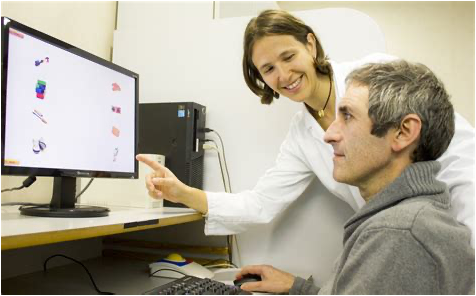Quick Hits
Daily brief research updates from the cognitive sciences

Cognitive games have been around for many years now – the first wave of popularity came with Nintendo’s “brain jogging” almost two decades ago now.
These games have claimed that they improve brain function and indeed there has been some solid research to show this does happen. But when digging into the research an inconsistent picture emerges.
The sticking point is what we call near and far transfer. If you train anything you will get better at it – that is no surprise, but the question is how far can this transfer to real life? So, if you are playing any form of cognitive game such as a short-term memory game, the really important question is how much does this transfer to everyday life, i.e. will my memory be improved when meeting people or going shopping?
It is precisely this that has shown inconsistent results. And it is precisely this that a group of researchers at the University of California wanted to get a better grip on.
What did they find?
They conducted a series of experiments with 500 individuals and found consistent results. They found that the degree of near transfer predicated far transfer.
Near transfer is doing similar but different tasks whereas far transfer transfers to less related tasks. For example, if I were training running on a treadmill, near transfer would be improving my road running performance (similar but not exactly the same), and far transfer would be improving my tennis or cycling ability (related but very different).
So, it appears that once transfer happens, it can happen also to more unrelated tasks. The question they would now like to answer is why? One reason is that people may by applying different skills to complete the task which don’t transfer or are unable to generalise the skills, or another factor may be that there is another bottleneck. In the above treadmill running eample, improved cardiovascular fitness may improve most sports, but in tennis coordination may be the bottleneck that impedes my improvement, and this is not trained on the treadmill.
I found this particularly interesting because I have followed the research over the years but also because one skill, I have found to be useful and different between individuals, in training and coaching executives, is that some of these senior leaders seem very good at generalising and applying various principles to different scenarios and others can’t seem ot do so. Maybe it is the difference between a generalised brain and a specialised brain?
The researchers are looking for participants, by the way, to do a large-scale citizen study with up to 30’000 participants to give us some robust answers to the mechanism of near and far transfer.
I look forward to seeing the results!

Andy Habermacher
Andy is author of leading brains Review, Neuroleadership, and multiple other books. He has been intensively involved in writing and research into neuroleadership and is considered one of Europe’s leading experts. He is also a well-known public speaker speaking on the brain and human behaviour.
Andy is also a masters athlete (middle distance running) and competes regularly at international competitions (and holds a few national records in his age category).
Reference
Anja Pahor, Aaron R. Seitz, Susanne M. Jaeggi.
Near transfer to an unrelated N-back task mediates the effect of N-back working memory training on matrix reasoning.
Nature Human Behaviour, 2022
DOI: 10.1038/s41562-022-01384-w
More Quick Hits
Engaging Leadership Boosts Employee Engagement, and Team Effectiveness, and Resilience
Quick HitsDaily brief research updates from the cognitive sciences paper just out has looked again at leadership style and impacts on employee engagement and also various team effectiveness measures. Greta Mazzetti of the University of Bologna,...
How Walking Makes Some People “Super Taskers”
Quick HitsDaily brief research updates from the cognitive sciences hose of you who have followed my writing will know that I have reported regularly on the amazing benefits of exercise and walking on the brain, body, and cognition. However, though...
Older People are Better at Responding to Distress
Quick HitsDaily brief research updates from the cognitive sciences e may have some cliched ideas of older people like the grumpy or angry old man, or woman (but it is often a man). However, research continually shows the opposite. Namely that...
Guided Play Highly Effective for Learning in Children
Quick HitsDaily brief research updates from the cognitive sciences ood news for some and bad news for traditionalists in education. Some believe that starting education early and using classical and traditional learning activities is the best way...
Childhood Fitness Improves Mid-Life Cognition
Quick HitsDaily brief research updates from the cognitive sciences always find these long-term studies fascinating. Imagine launching study and not knowing what the outcomes will be for another 30 years! This is precisely what this study did. It...
The Truth of “Work Hard, Play Hard”
Quick HitsDaily brief research updates from the cognitive sciences e all know the phrase “work hard, play hard” and this drew my attention when I stumbled across some research actually looking into this - and whether this is a good thing or bad...






